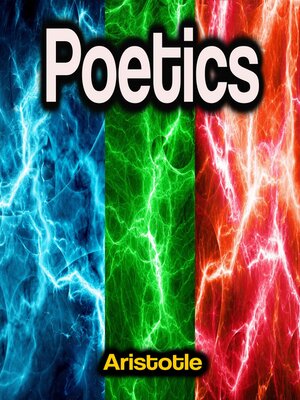
Sign up to save your library
With an OverDrive account, you can save your favorite libraries for at-a-glance information about availability. Find out more about OverDrive accounts.
Find this title in Libby, the library reading app by OverDrive.



Search for a digital library with this title
Title found at these libraries:
| Library Name | Distance |
|---|---|
| Loading... |
Poetics Aristotle - Aristotle's Poetics (Greek: Peri poietikês; Latin: De Poetica; c. 335 BC) is the earliest surviving work of dramatic theory and first extant philosophical treatise to focus on literary theory. In this text Aristotle offers an account of , which refers to poetry or more literally "the poetic art," deriving from the term for "poet; author; maker," . Aristotle divides the art of poetry into verse drama (to include comedy, tragedy, and the satyr play), lyric poetry, and epic. The genres all share the function of mimesis, or imitation of life, but differ in three ways that Aristotle describes: Differences in music rhythm, harmony, meter and melody. Difference of goodness in the characters. Difference in how the narrative is presented: telling a story or acting it out. The analysis of tragedy in the Poetics constitutes the core of the discussion. Although the text is universally acknowledged in the Western critical tradition, "almost every detail about his seminal work has aroused divergent opinions". The work was lost to the Western world for a long time. It was available in the Middle Ages and early Renaissance only through a Latin translation of an Arabic version written by Averroes.







